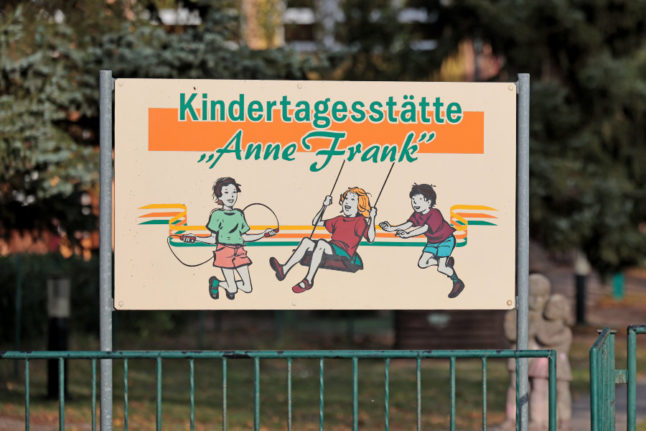The kindergarten in the town of Tangerhuette proposed removing the name of the teenager, whose diary about hiding from the Nazis became a world-famous reminder of the horrors of the Holocaust.
A new name of “Weltendecker” (World Explorers) for the centre was suggested, with the preschool’s head reportedly saying this was because the story of the Jewish girl was hard for children to grasp.
Parents from an immigrant background would also struggle to understand its significance, the head told local newspaper the Volksstimme.
Local authorities in the eastern town said the proposal was part of a broader overhaul of the kindergarten, insisted no final decision had been taken on a new name, and “current public discussions” would be taken into account.
But the move sparked anger in a country still atoning for the slaughter of more than six million Jews by the Nazis, and as Germany faces a rise in anti-Semitic incidents amid the Israel-Hamas war.
READ ALSO: Germany’s Scholz joins call to ‘protect Jews’ amid rising anti-Semitism
The proposed name change sends “the wrong signal at a time of growing anti-Semitism,” said the Miteinander association, a group that fights anti-Semitism, racism and right-wing extremism in the eastern state of Saxony-Anhalt state.
“Now more than ever, there is a need for a high degree of sensitivity to the effect of such symbolic renamings.”
The International Auschwitz Committee, formed by survivors of the concentration camp of the same name, accused officials of making “foolish arguments” to justify the proposal.
“If one is willing to so casually erase one’s own history, especially in
these times of renewed anti-Semitism and right-wing extremism… it can only make one deeply concerned about the culture of remembrance in our country,” said the group’s Christoph Heubner.
Anne Frank, a teenager from Amsterdam, spent two years in hiding with her family in a secret annexe behind a canal-side house. After their hiding place was discovered, Anne died of typhus in the Bergen-Belsen concentration camp in Germany, aged 15.
Since the outbreak of conflict in the Middle East, Germany has witnessed violence at some pro-Palestinian demonstrations while Molotov cocktails were thrown at a Berlin synagogue, without causing injuries or damage.



 Please whitelist us to continue reading.
Please whitelist us to continue reading.
The claim that immigrants will struggle to understand is simply an insult- on the contrary- it is such an important part of this country’s history, we NEED to make sure immigrants will know and understand this story. Also- an insult to immigrants!